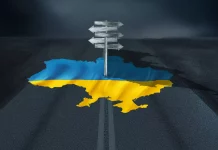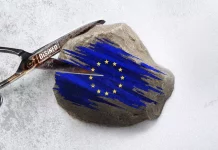
Weekly update on Kremlin disinformation efforts
European Parliament against disinformation
The European Parliament approved a motion for a resolution which warns against propaganda pressure from Russia and the Islamic State. MEPs call for reinforcing the EEAS East StratCom Task Force and for investing more in awareness raising, education, online and local media, investigative journalism, and information literacy. This move did not make the Russian President Vladimir Putin happy and who said that the resolution signalled a “political degradation of democratic ideas in Western society.” And what is our opinion on this?

The Minister of Defence of the Czech Republic recently participated in a discussion of the Aspen Institute about defence and security policy and stated that: “The armies of trolls exist, that is an apparent fact. Russia spends a lot of money on propaganda, finances televisions; there are tens of propagandistic servers just in the Czech Republic. There are also coming efforts to establish a new interpretation of various historical events, for example the year 1968, how the Alliance wanted to attack The Warsaw Pact and how the allied forces saved us.”
The Finnish Under-Secretary of State, Jori Arvonen, announced that Finland considers establishing a “centre of excellence” in Helsinki focused on hybrid warfare research, already discussing the idea with several other countries from Western and Central Eastern Europe, and with EU and NATO as well. According to Arvonen, the aim would be to “strengthen the involved parties’ resistance and prepare for hybrid threats by training, research, and exchanging of best practices.”
Another tense presidential election ahead?
Nicolas Sarkozy has been outed by the former French Prime Minister François Fillon in the conservative primary. This new candidate for the next French President caused some worries about his leanings towards the Kremlin; thanks to his repeated defence of Russia, blaming the West for provoking Moscow into conflict with Ukraine, demanding the lifting of sanctions imposed on Russia over the annexation of Crimea, and promoting the alliance with Russia and Syria against the Islamic State. It might be interesting to see his stances towards Russia develop fully during his pre-elections campaign. You can read his more detailed profile on Politico.
Putinversteher of the Week
Have you found the behaviour of some Western politician or other publicly known figure worth the award? Let us know! You can nominate your candidate for the next week by replying to this e-mail or via #PutinversteherOfTheWeek.
Last week we awarded a Hollywood actor for his excessive adoration of Vladimir Putin, but this week you were given a more serious choice between two political figures. Who did you choose?
Marion Machéral-Le Pen

The French MP, member of the Front National, and a niece of its leader Marine Le Pen paid a visit to Moscow. During her stay, she met with Natalia Poklonskaya, the Deputy of the Russian State Duma, with whom she spoke about strengthening relations between Russia and France. Poklonskaya used to be a Prosecutor General of the Republic of Crimea and has been targeted by the sanctions of the European Union and the United States. She invited the French MP to Crimea.

Le Pen also gave an interview to RT and visited the Moscow State Institute of International Relations.


Special focus: Disinformation on social networks
Disinformation as a path to the Oval Office?
After the announcement of the results of the US presidential election, which were surprisingly for many observers dominated by the Republican candidate Donald Trump, a wide discussion has been launched about the influence of fake news on the voters’ preferences. Disinformation, especially on the social networks, is often being blamed for his victory.
Reaction
In response to that, companies Facebook and Google announced that they will restrict access of the servers spreading fake news on the internet to their services which enable them to gain finances from advertisements placed on the websites. Both firms want to prevent owners of these webs from making a profit from spreading fake information. But according to The Guardian, these measures do not solve the problem when the Facebook algorithm recommends pages and posts users might be interested in based on their previous activity. That means that when a user often seeks “independent news” or “news without censorship,” as the disinformation platforms often title themselves, the algorithm recommends him or her similar websites.
Facebook stance
Mark Zuckerberg, the founder of Facebook, opposed the opinion that Donald Trump won the election thanks to the fake information spread through his social network and refused any responsibility for the content users share. However, later he admitted that the problem is serious and stated that Facebook is working on a solution.
Zuckerberg mentioned several specific measures under consideration, for example simplifying the process of reporting deceptive content, cooperation with third parties (fact-checking organizations and journalists), and establishing a warning against content which has been identified as disinformation.
Problem with ethics
He also pointed out to ethical problems which make such measures incredibly sensitive. For example, Zuckerberg worries that users will be afraid to share their opinions and will resort to auto-censorship, or that unproblematic content will be affected. He believes the solution is to leave part of the responsibility on the users themselves and on trustworthy third parties.
Ethical problems have also been highlighted by Jack Shafer. He worries that such a system for decommissioning fake information might turn to suppressing nonconformist views. According to Shafer, the problem is not on the side of the fake information per se, but on the side of the readers who create demand for it. He sees the solution not in censorship, but in increasing media literacy and education.
Czech Disinformation Corner
The history of coups in the Czech Republic: An important topic of pro-Kremlin websites in the last two weeks, were revolutions. We intercepted already classic disinformation about the Velvet Revolution being in reality a coup orchestrated by the Czechoslovak State Security, or alternatively by CIA in cooperation with KGB. According to Petr Hájek, the former presidential spokesman, it was the first colour revolution in history. Protests against President Miloš Zeman from the 28th of October were evaluated in a similar manner. Allegedly, they were influenced by accomplices of “Ukrainian fascists.”
The Ministry of Interior has also been accused of connections to fascists after it announced its own team for strategic communication called Centre against terrorism and hybrid threats.
Kremlin Watch is a strategic program of the European Values think-tank, which aims to unravel and confront instruments of Russian hybrid war which is focused against liberal-democratic system. Find out more at www.europeanvalues.net/kremlin






